Games I am Thankful For: The Legend of Zelda: A Link to the Past
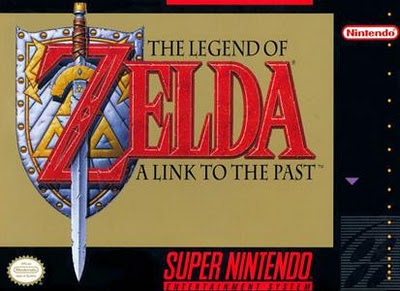 In the I-guess-this-is-an-annual-thing department, the game I am thankful for this year is The Legend of Zelda: A Link to the Past. Not that I've played it in years, or even thought about it much lately, but the only Super Nintendo Zelda entry is just one of those perfect gaming experiences that you can never quite escape, not that you would want to.
In the I-guess-this-is-an-annual-thing department, the game I am thankful for this year is The Legend of Zelda: A Link to the Past. Not that I've played it in years, or even thought about it much lately, but the only Super Nintendo Zelda entry is just one of those perfect gaming experiences that you can never quite escape, not that you would want to.
Last year I talked about Harvest Moon and before that a series of influential multiplayer games.
I remember the first time I played it, probably around 1994 at a cousin's house in Neenah, Wisconsin (which also happened to be the first place I ever played Super Mario Bros., but that was years earlier). They were far enough in the game that they could summon the little bird with the flute that could warp you around the map, which made exploration a bit easier, but obviously would have ruined part of the game experience if I had understood the logistics of the world a bit better. But luckily, my future exploration of Hyrule wasn't destroyed by this brief warp-around.
Dungeon Village
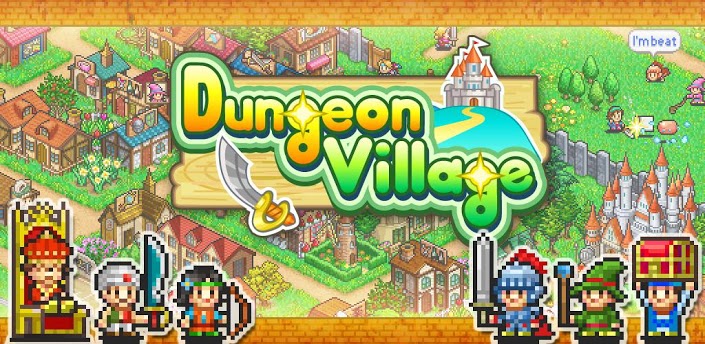 It’s been a while since I played a Kairosoft game, not since May with the extremely lackluster Epic Astro Story. It’s easy to say it’s that game that put me off for another six months, but the Kairosoft formula as a whole can really drag on a gamer after a half dozen games.
It’s been a while since I played a Kairosoft game, not since May with the extremely lackluster Epic Astro Story. It’s easy to say it’s that game that put me off for another six months, but the Kairosoft formula as a whole can really drag on a gamer after a half dozen games.
But Dungeon Village was on super sale at the Google Play store, and it seems like it should be right up my alley: build up a Japanese RPG village which will house an inn full of heroes. Some of my earliest gaming experiences were with Dragon Warrior and Final Fantasy 1, the nostalgia of my youth was calling me to a game I could play on my phone in the bathroom.
Dungeon Village was released in March for Android and iOS, this review is for the Android version.
Wii Truths Day 5: Game Spotlights
 The
Wii was a special console for me. Its lifespan coincided with a leisure
sweetspot in my own life that afforded intoxicating levels of videogame
opportunity. I played a lot of Wii games and tracked all the Wii
developments, be they exciting or mundane, major or minor, captivating
or frustrating. I found plenty of fun on my PS3, and I suffered the
exclusivity of many X360 hits, but I don’t regret spending the majority
of my gaming prime with Nintendo’s bold experiment.
The
Wii was a special console for me. Its lifespan coincided with a leisure
sweetspot in my own life that afforded intoxicating levels of videogame
opportunity. I played a lot of Wii games and tracked all the Wii
developments, be they exciting or mundane, major or minor, captivating
or frustrating. I found plenty of fun on my PS3, and I suffered the
exclusivity of many X360 hits, but I don’t regret spending the majority
of my gaming prime with Nintendo’s bold experiment.
Although many will say the Wii died long before 2012 (and not
without merit), the system’s successor is a week away from taking the
baton, signaling the official end of Wii’s journey. With that in mind, I
thought it would be appropriate to take a week and remember just what
Nintendo’s “Revolution” was all about. Each day this week, we’ll take a
closer look at one aspect of the Wii’s legacy, framed by a number of Wii
Truths that have dawned on me as I look back on the generation.
Wii Truths Week ends today, with the spotlight hovering over a handful of specific games that I found notable for some reason or another. Some of the games getting the spotlight are personal favorites, but this definitely isn’t a top ten list. After all, sometimes the most remarkable games are the failures that serve as cautionary examples.
And the truth is...
Wii Truths Day 4: Digital Distribution
 The
Wii was a special console for me. Its lifespan coincided with a leisure
sweetspot in my own life that afforded intoxicating levels of videogame
opportunity. I played a lot of Wii games and tracked all the Wii
developments, be they exciting or mundane, major or minor, captivating
or frustrating. I found plenty of fun on my PS3, and I suffered the
exclusivity of many X360 hits, but I don’t regret spending the majority
of my gaming prime with Nintendo’s bold experiment.
The
Wii was a special console for me. Its lifespan coincided with a leisure
sweetspot in my own life that afforded intoxicating levels of videogame
opportunity. I played a lot of Wii games and tracked all the Wii
developments, be they exciting or mundane, major or minor, captivating
or frustrating. I found plenty of fun on my PS3, and I suffered the
exclusivity of many X360 hits, but I don’t regret spending the majority
of my gaming prime with Nintendo’s bold experiment.
Although many will say the Wii died long before 2012 (and not
without merit), the system’s successor is a week away from taking the
baton, signaling the official end of Wii’s journey. With that in mind, I
thought it would be appropriate to take a week and remember just what
Nintendo’s “Revolution” was all about. Each day this week, we’ll take a
closer look at one aspect of the Wii’s legacy, framed by a number of Wii
Truths that have dawned on me as I look back on the generation.
Day four continues our software examination, now with a focus on Nintendo’s first major foray into digital distribution. Nintendo never mass-advertised Wii's online capabilities: neither the Virtual Console library of classic games nor WiiWare’s original software lineup received much attention. The marketing message was motion and Mario; lots of Wii owners still have no idea that their system can pluck videogames right from the ether.
But the truth is...
Wii Truths Day 3: Software Trends
 The
Wii was a special console for me. Its lifespan coincided with a leisure
sweetspot in my own life that afforded intoxicating levels of videogame
opportunity. I played a lot of Wii games and tracked all the Wii
developments, be they exciting or mundane, major or minor, captivating
or frustrating. I found plenty of fun on my PS3, and I suffered the
exclusivity of many X360 hits, but I don’t regret spending the majority
of my gaming prime with Nintendo’s bold experiment.
The
Wii was a special console for me. Its lifespan coincided with a leisure
sweetspot in my own life that afforded intoxicating levels of videogame
opportunity. I played a lot of Wii games and tracked all the Wii
developments, be they exciting or mundane, major or minor, captivating
or frustrating. I found plenty of fun on my PS3, and I suffered the
exclusivity of many X360 hits, but I don’t regret spending the majority
of my gaming prime with Nintendo’s bold experiment.
Although many will say the Wii died long before 2012 (and not
without merit), the system’s successor is a week away from taking the
baton, signaling the official end of Wii’s journey. With that in mind, I
thought it would be appropriate to take a week and remember just what
Nintendo’s “Revolution” was all about. Each day this week, we’ll take a
closer look at one aspect of the Wii’s legacy, framed by a number of Wii
Truths that have dawned on me as I look back on the generation.
The first two days of Wii Truths Week focused on the hardware; from now on, it’s all about the software. Day three begins that trend with a broad look at the Wii’s library, examining how Wii’s unique market position influenced the software that developers made for it. Following Wii Sports’ example, a lot of developers decided that Wii was best suited for collections of short, simple experiences. The plethora of minigame compilations became the butt of jokes shared among the core gaming crowd.
But the truth is...
Wii Truths Day 2: System Features
 The
Wii was a special console for me. Its lifespan coincided with a leisure
sweetspot in my own life that afforded intoxicating levels of videogame
opportunity. I played a lot of Wii games and tracked all the Wii
developments, be they exciting or mundane, major or minor, captivating
or frustrating. I found plenty of fun on my PS3, and I suffered the
exclusivity of many X360 hits, but I don’t regret spending the majority
of my gaming prime with Nintendo’s bold experiment.
The
Wii was a special console for me. Its lifespan coincided with a leisure
sweetspot in my own life that afforded intoxicating levels of videogame
opportunity. I played a lot of Wii games and tracked all the Wii
developments, be they exciting or mundane, major or minor, captivating
or frustrating. I found plenty of fun on my PS3, and I suffered the
exclusivity of many X360 hits, but I don’t regret spending the majority
of my gaming prime with Nintendo’s bold experiment.
Although many will say the Wii died long before 2012 (and not
without merit), the system’s successor is a week away from taking the
baton, signaling the official end of Wii’s journey. With that in mind, I
thought it would be appropriate to take a week and remember just what
Nintendo’s “Revolution” was all about. Each day this week, we’ll take a
closer look at one aspect of the Wii’s legacy, framed by a number of Wii
Truths that have dawned on me as I look back on the generation.
Yesterday we checked the facts of the little white wonder’s disruptive controller; we take a look at the rest of the system’s features on day two. Wii was no stranger to big ideas, despite its modest guts. And it always dared to take on new challenges, seeming to find gold mine after gold mine with Wii Sports, Mario Kart Wii, Wii Fit, and more.
But the truth is...
Wii Truths Day 1: Motion Controls
 The Wii was a special console for me. Its lifespan coincided with a leisure sweetspot in my own life that afforded intoxicating levels of videogame opportunity. I played a lot of Wii games and tracked all the Wii developments, be they exciting or mundane, major or minor, captivating or frustrating. I found plenty of fun on my PS3, and I suffered the exclusivity of many X360 hits, but I don’t regret spending the majority of my gaming prime with Nintendo’s bold experiment.
The Wii was a special console for me. Its lifespan coincided with a leisure sweetspot in my own life that afforded intoxicating levels of videogame opportunity. I played a lot of Wii games and tracked all the Wii developments, be they exciting or mundane, major or minor, captivating or frustrating. I found plenty of fun on my PS3, and I suffered the exclusivity of many X360 hits, but I don’t regret spending the majority of my gaming prime with Nintendo’s bold experiment.
Although many will say the Wii died long before 2012 (and not without merit), the system’s successor is a week away from taking the baton, signaling the official end of Wii’s journey. With that in mind, I thought it would be appropriate to take a week and remember just what Nintendo’s “Revolution” was all about. Each day this week, we’ll take a closer look at one aspect of the Wii’s legacy, framed by a number of Wii Truths that have dawned on me as I look back on the generation.
First up, the Wii’s major selling point: its motion controls. The entire Wii marketing blitz revolved around the system’s intuitive, kinetic play style. Thanks to Nintendo’s expanded market view, which even made Wii a hit in retirement communities, the system flew off shelves faster than it could be stocked for the first year of its life. It was all thanks to an inviting white remote that effortlessly transformed into a tennis racquet, a bowling ball, and a golf club.
But the truth is...
Gratuitous Tank Battles and Expansion: The Western Front
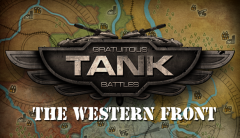 Gratuitous Tank Battles is a unique take on tower-strategy mechanics, created by a man who
clearly has a strong attention to detail. This article will be covering
both the base game, released this past May, and its expansion The Western Front,
which is being released this today on Steam. Both are developed by
Positech Games, which is more or less known as
Cliff "cliffski" Harris. At first glance, GTB appears to be a standard tower defense
game covered in a fine finish, but things quickly
become more complicated. For a bit of background reading, we do
also have a preview of the game which goes over the basics from a different point of view.
Gratuitous Tank Battles is a unique take on tower-strategy mechanics, created by a man who
clearly has a strong attention to detail. This article will be covering
both the base game, released this past May, and its expansion The Western Front,
which is being released this today on Steam. Both are developed by
Positech Games, which is more or less known as
Cliff "cliffski" Harris. At first glance, GTB appears to be a standard tower defense
game covered in a fine finish, but things quickly
become more complicated. For a bit of background reading, we do
also have a preview of the game which goes over the basics from a different point of view.
The Walking Dead: Starved for Help
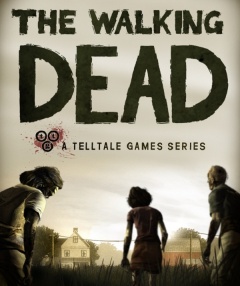 I’m not any kind of expert on zombie apocalypse fiction, but from my point of view, there’s two crucial points in the story that every good zombie story needs, and needs to do well. The first is the tension build-up in Act 1. Everyone watching, reading, or playing some sort of zombie media knows there will be zombies. The ones who don’t know are the characters, the heroes whose lives are about to be torn apart by the undead. The more tension the author can build, the more satisfying and terrifying the reveal will be when hell is unleashed.
I’m not any kind of expert on zombie apocalypse fiction, but from my point of view, there’s two crucial points in the story that every good zombie story needs, and needs to do well. The first is the tension build-up in Act 1. Everyone watching, reading, or playing some sort of zombie media knows there will be zombies. The ones who don’t know are the characters, the heroes whose lives are about to be torn apart by the undead. The more tension the author can build, the more satisfying and terrifying the reveal will be when hell is unleashed.
The other crucial part of zombie fiction doesn’t involve the zombies at all, but human conflict. The zombie mythos rule of thumb says that the dead are never the true enemy in zombie fiction and that interesting drama lies in the living. This is true, but drama isn’t necessarily easy or obvious to write, so it’s not a given it’s executed well.
The Walking Dead already featured their tension build-up and zombie reveal in Episode 1: A New Day, but it still surprised me that Episode 2: Starved for Help almost immediately dropped running from zombies in favor of arguing with fellow survivors, but Telltale Games is apparently confident in their story, so let’s take a look.
Retro City Rampage
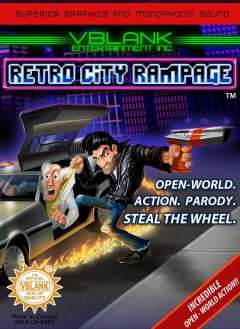 When I rented the Harvey Birdman: Attorney at Law
video game a few years ago, I learned that some comedy has a minimum
speed limit. I loved the rapid surrealist gags in the Adult Swim
cartoon, but fifteen minutes was all I could take of the same humor
decelerated to account for player input. What worked at twenty jokes per
minute just didn’t translate to a relaxed visual novel speed.
When I rented the Harvey Birdman: Attorney at Law
video game a few years ago, I learned that some comedy has a minimum
speed limit. I loved the rapid surrealist gags in the Adult Swim
cartoon, but fifteen minutes was all I could take of the same humor
decelerated to account for player input. What worked at twenty jokes per
minute just didn’t translate to a relaxed visual novel speed.
Retro City Rampage has taught me that the funny/fast correlation works both ways. What was shaping up to be a parade of lazy puns and toothless parodies is acceptable entertainment when marched at a sprinter’s pace. It’s all in the delivery.
And Rampage delivers ‘80s nostalgia in spades. From head to toe, the game is decked out in pop culture knockoffs. You’ll accept missions from Principal Belding, find Game Genie codes, and change your appearance in a Michael Jackson facelift shop...with slight alterations that abide by intellectual property laws, of course.
